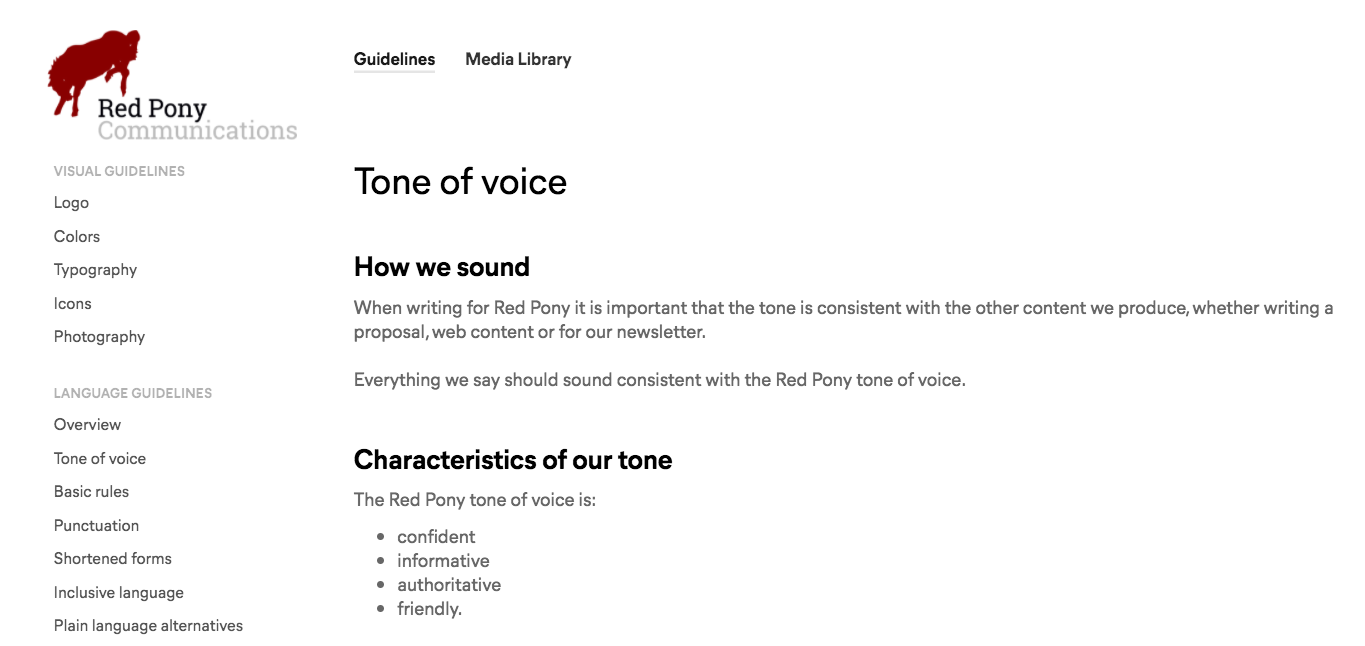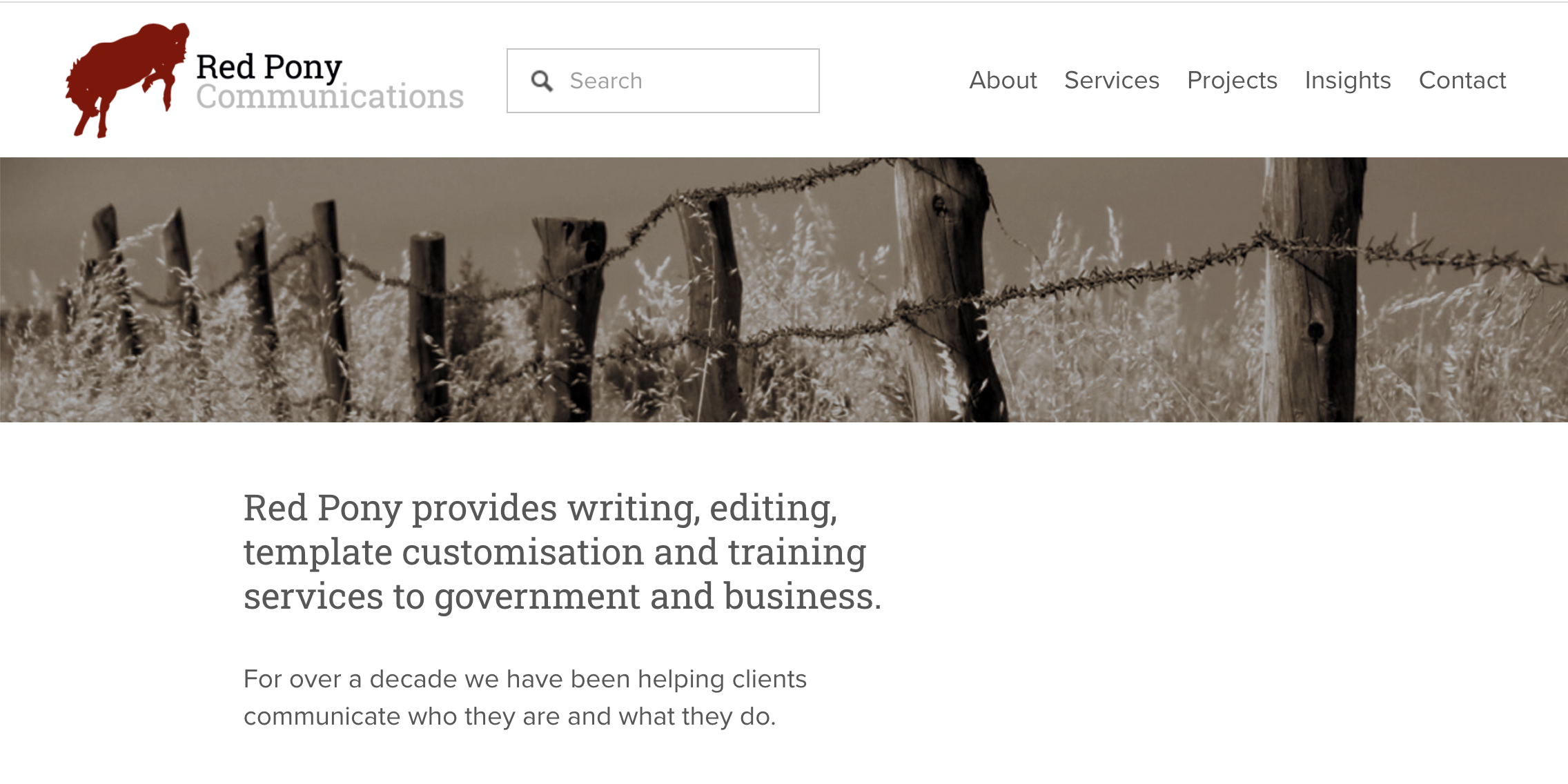Insights archive
Red Pony is a team of writers, editors, Microsoft Office template developers and communications trainers. We have been writing about our areas of expertise for over a decade in our Red Pony Express newsletter.
This collection features the best articles from the last 10 years.

No place for hope
When you’re applying for grants, awards and tenders, it’s no time to be modest, uncertain or even loud. Simply make your claims, back them up and be rigorous. The rest may well be fill. Even if your application does not get what you would’ve hoped for, assessors will thank you for making their jobs easier.

How do you write like you’re running out of time?
Lin-Manuel Miranda’s account of the life of American founding father, Alexander Hamilton, has won almost every award imaginable – including a Pulitzer Prize. The rapid-fire vocal delivery of rap and hip-hop enables Miranda to convey a lot of information in each song without ever sounding like a history lesson.

The smell of a message
And right there is one thing that scent marketers have learned at a cost: smells evoke memories, and a smell that appeals to one demographic may put off another.

Being more productive by doing nothing
Being continually connected to your email and phone between meetings not only fills your day, it also makes it difficult to think beyond the immediate demands on your time. The problem is potentially more acute now that many of us are working more hours from home due to the current pandemic, making it even harder to completely switch off.

Why I’ll persevere with reading poetry
Have you ever read a poem that’s left you with a sense of unease or ambiguity because you found it obscure or open-ended? Or because you felt you didn’t quite get a message that you should’ve gotten?

Maintaining your language style guide
A language style guide specifies how people should write for your organisation – how formal or casual the tone, any preferences for certain terms, whether or not to use Oxford commas … it’s effectively the language equivalent of a design style guide that specifies such things as the colours of the logo and the fonts to use.

The costly consequences of typos
Make a point of proofreading your communications, always. Build in the time for it. If necessary, read your work aloud (or get Microsoft Word to do it for you). Another option is to change the font of your text to trick your mind into thinking the content is unfamiliar and fresh. Many simple errors can be caught this way.

How COVID-19 is changing the way we work
The pandemic has accelerated work trends that might have otherwise taken years to become common practice. Fortuitously, many of the technologies required to make this possible have matured at just the right time, including the availability of broadband internet and powerful portable computers combined with ubiquitous teleconferencing applications like Zoom, Google Meet and Microsoft Teams.

Yodish: not so out of this world
By inverting the sequence of certain words or phrases in a sentence, anastrophes can be a skilful way of getting readers to attend more carefully – and, in some cases, to ascribe more weight – to what is being said.

What’s a project worth?
Lately I’ve been refining the tools we use to estimate the cost of writing, editing and proofreading projects. I thought I’d share with you some of the variables we use to predict the time a particular project will involve – which in turn determines the amount we quote.

The many faces of English
The English language is chameleon-like: a previous Red Pony Express article noted the ease with which it reaches across the Atlantic and Pacific to cross-pollinate and reinvent itself.

Your website is never finished
A website should never be a static thing. Red Pony’s own web presence has gone through a number of minor and major revisions over the years. Changes to the content and the structure reflected changes in the business as well as upgrades to the underlying software platform.

Beware the certainty of numbers
As uncertainty and confusion about COVID-19 continue in people’s lives, those hungry for information are finding themselves taking a crash course in epidemiological terms. A number of information platforms have responded by publishing their own COVID-19-related glossaries, including the Yale School of Medicine and our own ABC. But what about COVID-19 numbers?

Simple tips for refreshing website content
Like a lot of other businesses, we’ve been using the COVID-19 downtime to do a bit of housekeeping, including the next iteration of the Red Pony website (more about that soon). We’ve also been helping several other clients develop content to update their own sites, so I thought I’d use this opportunity to provide a few tips on writing for the web.

Panic stations: fear amid an ‘infodemic’
There is much uncertainty and fear in the current COVID-19 crisis. We fear the disease itself, the possibility of death, the unknown. We fear the loss of our livelihoods, our ability to connect with others as we have done and of life as we know it. Many of us have already suffered losses, and for some the prospect of more loss is devastating. Much of this fear is real. But there is also much misinformation, intended or not.

Editing as an essential service
Despite all of our advances in science and technology, falsehoods about the origin, spread and effective treatment of COVID-19 abound. In fact, the most effective communication tool humans have invented to date – the internet – has only served to give oxygen to rumours and lies and helped them to proliferate.

Commas say something in adjective pairs
Adjectives describe people, animals and objects, and in doing so, particularise and identify them. They answer questions like what kind, how many and which one? It’s hard to imagine a world without adjectives, but I’d like to see a science fiction writer try.

Seeing names: the fascinating world of synaesthesia
I’m terrible at remembering people’s names. I’m well aware of this deficiency and over the years I’ve made a conscious effort to address it, admittedly with limited success. As Dale Carnegie once observed, ‘A person’s name is, to that person, the sweetest and most important sound in any language.’

Email tone detector: helpful tool or cultural imperialism?
I’m always interested to see how automation and artificial intelligence are being deployed to help people write more clearly. The latest innovation to catch my eye is a ‘tone detector’ from the popular writing assistant software developer Grammarly.
A New Year's resolution on hedging
As 2020 draws near, I think about what I did this time last year, when I said things such as ‘I reckon I’ll exercise more’, ‘Maybe I’ll join the gym’. Hang on. ‘I reckon’? ‘Maybe’? What’s that?
